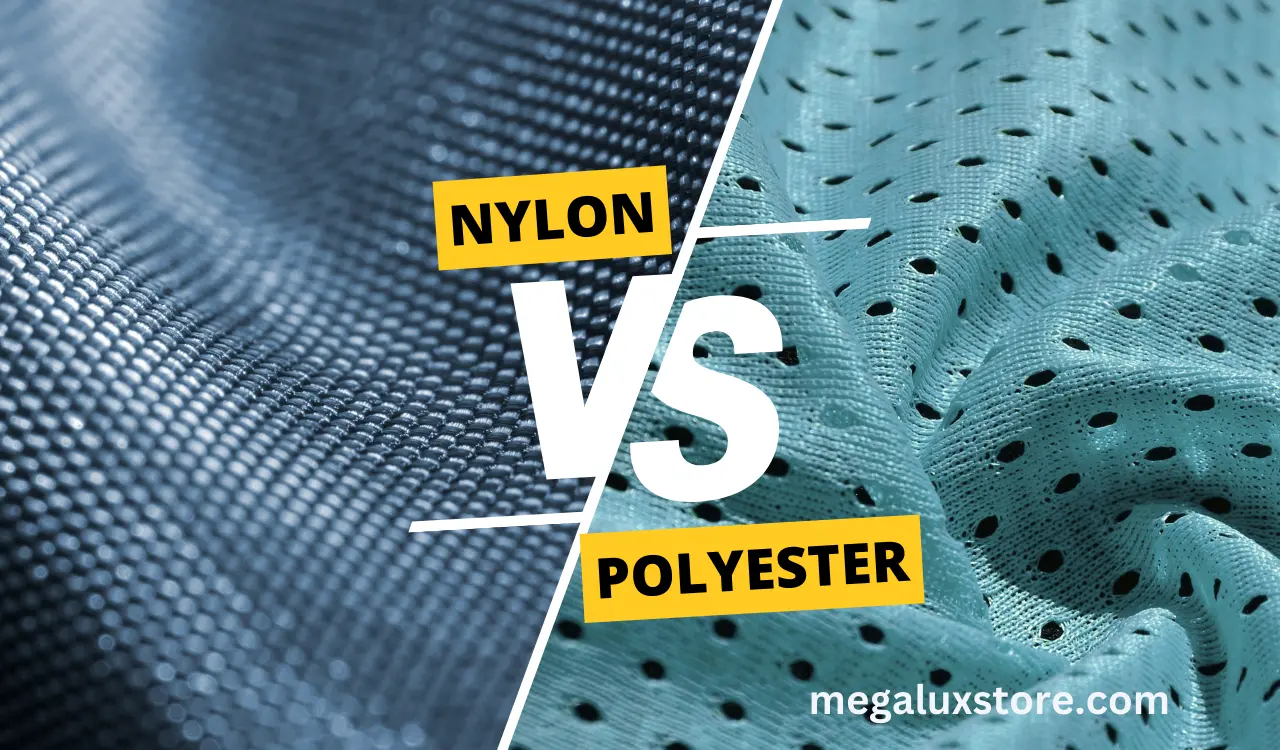In the world of fashion and functionality, the choice of fabric plays a pivotal role. Among the numerous options available, nylon and polyester stand out as popular choices for clothing. Let’s explore nylon vs polyester clothes and Understanding the differences between these two materials is essential for making informed decisions when it comes to your wardrobe.
Nylon vs Polyester Clothes
| Understanding Nylon Fabric | Exploring Polyester Fabric |
| Nylon, a synthetic polymer, was first introduced in the 1930s. Known for its strength and elasticity, nylon has found its way into various industries, including fashion. Nylon clothes are celebrated for their durability, making them a go-to choice for activewear and outerwear. The lightweight and smooth texture of nylon fabric contributes to its popularity in the fashion world. | Polyester, another synthetic fabric, emerged in the mid-20th century as a cost-effective alternative to natural fibers. Polyester clothes are recognized for their resistance to wrinkles and easy maintenance. The fabric’s versatility has led to its widespread use in various clothing items, from casual wear to formal attire. |
Nylon vs Polyester: Durability
When it comes to durability, both Nylon vs Polyester Clothes have their strengths. Nylon excels in resisting abrasions and tearing, making it a preferred choice for outdoor and sports clothing. Polyester, on the other hand, offers excellent resistance to stretching and shrinking, ensuring that your clothes maintain their shape over time.
Comfort and Breathability
In terms of comfort, the debate for Nylon vs Polyester Clothes is subjective. Nylon’s smooth texture can be comfortable against the skin, while polyester’s breathability makes it suitable for warmer climates. Understanding personal preferences and considering the intended use of the clothing can guide your choice. In some clothes lead is used you know how dangerous is lead in clothing.
Moisture-Wicking Properties
For those with an active lifestyle, moisture-wicking properties become crucial. Nylon is known for quickly wicking away sweat, keeping the wearer dry during physical activities. Polyester also exhibits moisture-wicking capabilities, making it a reliable choice for workout gear.
Environmental Impact
As we become more conscious of our ecological footprint, it’s essential to consider the environmental impact of clothing materials. Nylon and polyester are both derived from petrochemicals, contributing to environmental concerns. However, advancements in sustainable manufacturing practices are being made to mitigate these effects.
Cost Comparison
The cost of clothing is often a significant factor in decision-making. Nylon is generally more expensive than polyester, but factors such as brand, design, and additional features can influence pricing. Understanding your budget and weighing the features that matter most to you will guide your decision.
Fashion Trends and Preferences
Fashion trends play a pivotal role in the popularity of clothing materials. Nylon and polyester have both made their mark in the fashion industry, with designers often choosing one over the other based on the desired characteristics of a particular quality garment. Understanding current trends and personal preferences can help you make fashion-forward choices. For this purpose you need to learn how to find a high quality clothing manufacturer.
Care and Maintenance
Caring for your clothing ensures longevity. Nylon garments benefit from gentle care to prevent snags and tears, while polyester clothes are known for their resilience to wrinkles. Following recommended care instructions will keep your clothes looking new for an extended period.
Special Considerations: Allergies and Sensitivities
For individuals with skin sensitivities or allergies, understanding the potential reactions to fabrics is crucial. While both nylon and polyester are generally hypoallergenic, some individuals may find one more suitable than the other. Testing a small patch of fabric against the skin can help identify any sensitivities.
Nylon Vs Polyester Blends
Blended fabrics offer a combination of the strengths of both nylon and polyester. Commonly used in various clothing items, blends provide a balance between durability, comfort, and cost. Understanding the specific blend percentages can guide your choice based on the desired characteristics.
Making Informed Choices: Buyer’s Guide
When faced with the decision between nylon and polyester, consider factors such as the intended use, comfort preferences, and budget constraints. Read product labels, check care instructions, and explore customer reviews to make an informed choice that aligns with your needs and values.
Conclusion
In the nylon vs. polyester debate, there’s no one-size-fits-all answer. Each fabric brings its unique set of characteristics to the table, catering to different preferences and needs. By understanding the properties of nylon and polyester, you empower yourself to make choices that align with your lifestyle and values. Whether you’re an outdoor enthusiast, a fashion-forward individual, or someone with specific comfort requirements, both nylon and polyester offer compelling options.
Frequently Asked Questions(FAQs)
Is nylon or polyester better for summer?
In summer, both nylon and polyester offer advantages, but polyester is often preferred for its moisture-wicking properties and breathability. Its quick-drying nature makes it ideal for staying cool and comfortable in warm weather.
Why is nylon not recommended for most clothes?
Nylon is generally not recommended for most clothes due to its limited breathability and moisture retention properties. Unlike other fabrics, nylon may trap heat and perspiration, leading to discomfort. Opting for more breathable materials like cotton or linen is often favored for enhanced comfort in everyday clothing.
Which is better poly cotton or nylon?
Choosing between poly-cotton and nylon depends on your needs. Poly-cotton blends offer a comfortable feel and breathability, making them great for everyday wear. On the other hand, nylon excels in durability and water resistance, making it ideal for outdoor activities. Consider your priorities – comfort or performance – to determine which fabric suits you better.
Which is more waterproof polyester or nylon?
Nylon generally outperforms polyester in waterproofing. Nylon’s inherent water-resistant properties make it a preferred choice for rainwear and outdoor gear. If water resistance is a priority, opting for nylon products may provide superior protection against the elements.
Which is more comfortable to wear nylon or polyester?
For comfort, polyester often surpasses nylon. Polyester fabrics are known for their softness and breathability, providing a comfortable wearing experience. If comfort is your priority, choosing polyester over nylon may result in a more pleasant and cozy feel against the skin.





